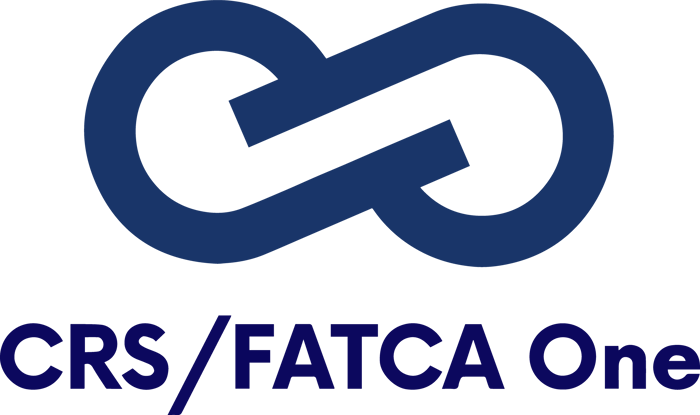Understanding Taxpayer Identification Numbers (TINs): What You Need to Know
Taxpayer Identification Numbers (TINs) are a fundamental component of tax systems worldwide, playing a crucial role in identifying taxpayers, facilitating tax compliance, and preventing fraud. Understanding what a TIN is and why it matters is essential for navigating the complexities of compliance. In this blog, we'll dive into the world of TINs, exploring their significance, validation processes, privacy concerns, and global implications, as well as the importance of implementing automation tools such as the CRS/FATCA One solution from Trans World Compliance.
1. What is a TIN?
A Taxpayer Identification Number (TIN) is a unique identifier assigned by a government tax authority to individuals and entities for tax purposes. A TIN serves as your financial identity in the tax system. It allows tax authorities to associate your income, financial transactions, and tax obligations with a specific number, ensuring accurate record-keeping and compliance. TINs are essential for filing tax returns, claiming tax benefits, and conducting various financial transactions.
TINs in different countries
TINs go by different names in various countries, and regardless of their name, the primary purpose remains the same: to track and manage tax-related activities. Here are a few examples:
- Social Insurance Number (SIN) - Canada: Canada uses the SIN as a tax identification number. It's used for various government programs and services, including taxation.
- National Insurance Number (NINO) - United Kingdom: In the UK, individuals receive a National Insurance Number, which is used for tax and social security purposes.
- Personal Public Service Number (PPS) - Ireland: Ireland issues PPS numbers to residents, and they are used for tax and social welfare purposes.
- CPF (Cadastro de Pessoas Físicas) - Brazil: CPF is a unique identification number issued by the Brazilian government, and it's used for tax and financial transactions.
- Aadhaar Number - India: India has the Aadhaar system, which provides a unique identification number to residents. While it's not specifically a tax ID, it's used for various government services, including taxation.
- RUT (Rol Único Tributario) - Chile: Chile uses the RUT as a tax identification number for individuals and entities.
These are just a few examples, and many other countries have similar systems in place to facilitate tax collection, social benefits, and government services. The specific name and format of these identification numbers can vary from country to country. Still, their purpose remains consistent: to identify and track taxpayers and ensure compliance with tax laws.
The TIN from the IRS
A TIN, used by the Internal Revenue Service (IRS) in the United States, tracks individuals, businesses, and other entities for tax purposes.
There are several types of TINs:
- Social Security Number (SSN): This is the most common type of TIN issued to individuals, including US citizens and residents. It's typically used for personal income tax purposes.
- Employer Identification Number (EIN): Also known as a Federal Tax Identification Number (FTIN), this is used by businesses and other entities for tax reporting. It's like a social security number for a business.
- Individual Taxpayer Identification Number (ITIN): ITINs are issued to individuals who are not eligible for a Social Security Number, such as non-resident aliens, but have a tax filing requirement in the US.
- Adoption Taxpayer Identification Number (ATIN): This temporary number is issued for children in the process of being adopted when the adoptive parents do not have an SSN or ITIN.
TINs are crucial for tracking tax obligations, filing tax returns, and ensuring taxpayers comply with their responsibilities. They help the IRS identify individuals and entities and accurately process tax-related documents.
2. Why are TINs needed for FATCA and CRS reporting?
Taxpayer Identification Numbers (TINs) play a crucial role in both the Foreign Account Tax Compliance Act (FATCA) and the Common Reporting Standard (CRS) reporting. These identification numbers are needed primarily for two reasons:
Unique Identification: TINs serve as unique identifiers for individuals and entities in the context of international tax reporting. In a global financial environment where individuals and entities can have accounts and investments in multiple countries, using TINs ensures that tax authorities can accurately and uniquely identify taxpayers. This uniqueness is essential for tracking financial activities and ensuring appropriate tax obligations are met.
Exchange of Information: FATCA and CRS are international agreements aimed at combating tax evasion by promoting the automatic exchange of financial account information between countries. To facilitate this exchange, financial institutions must collect TINs from their account holders and report these TINs, along with other relevant financial information, to their respective tax authorities. These tax authorities, in turn, share this information with the tax authorities of other participating countries.
Here's a breakdown of why TINs are specifically needed in FATCA and CRS reporting:
FATCA (Foreign Account Tax Compliance Act):
Verification of US Taxpayer Status: Under FATCA, foreign financial institutions (FFIs) are required to identify and report financial accounts held by US persons to the Internal Revenue Service (IRS) of the United States. TINs are used to verify the US taxpayer status of account holders. Without a TIN, it may be challenging to determine whether an account holder is a US person, making it a critical piece of information for compliance.
CRS (Common Reporting Standard):
Global Exchange of Information: CRS is a worldwide standard for the automatic exchange of financial account information between tax authorities of participating countries. TINs are used to ensure that the information reported by financial institutions is linked to the correct taxpayers in each participating country. TINs help avoid duplicate reporting and ensure taxpayers are not subject to excessive scrutiny from multiple tax authorities.
In summary, TINs are essential in FATCA and CRS reporting because they provide a standardized and unique way to identify taxpayers and link their financial accounts to their tax obligations. This facilitates the exchange of financial information between countries, enhances tax transparency, and helps combat tax evasion globally.

3. Financial Institutions, TINs and Compliance
Financial institutions play a critical role in supporting government efforts to combat tax evasion through Taxpayer Identification Number (TIN) validation and reporting. Their role is essential in ensuring tax compliance and preventing illicit financial activities. Here's an overview of how financial institutions support these government efforts:
TIN Verification and Validation:
Financial institutions are responsible for verifying the accuracy of TINs provided by their customers during the onboarding process. Validating TINs helps ensure that the correct taxpayer is associated with financial transactions and accounts.
Transaction Reporting:
Financial institutions are required to report certain financial transactions to tax authorities, especially those involving income, interest, dividends, and capital gains. These reports often include TINs to link the income or transaction to a specific taxpayer.
Withholding Taxes:
In some cases, financial institutions are responsible for withholding taxes on certain transactions if the account holder's TIN is not provided or is incorrect. This withholding ensures that taxes owed to the government are collected at the source.
Customer Due Diligence (CDD):
Financial institutions perform CDD procedures to identify and verify the identity of their customers, including validating TINs. This helps prevent individuals or entities from using financial accounts to evade taxes.
Anti-Money Laundering (AML) Efforts:
AML regulations require financial institutions to monitor and report suspicious financial activities. Accurate TIN data is essential for identifying potential tax evasion schemes that may involve money laundering.
Regulatory Compliance:
Financial institutions must comply with tax-related regulations and reporting requirements imposed by government agencies. Non-compliance can result in penalties and legal consequences.
Data Sharing with Tax Authorities:
Financial institutions often share customer information, including TINs, with tax authorities upon request or as required by law. This information exchange helps tax authorities track financial transactions and detect tax evasion.
Cross-Border Tax Compliance:
In international contexts, financial institutions assist with cross-border tax compliance by reporting financial activities of foreign account holders to their respective tax authorities through mechanisms like the Common Reporting Standard (CRS).
Enhanced Due Diligence (EDD):
For high-risk customers, financial institutions may conduct enhanced due diligence, which includes more rigorous TIN validation and monitoring to identify potential tax evasion or other financial crimes.
Education and Awareness:
Financial institutions often educate their customers about the importance of accurate TIN reporting and compliance with tax regulations.
Financial institutions are subject to strict regulatory oversight and are legally obligated to cooperate with government tax authorities. By implementing TIN validation processes, accurately reporting financial transactions, and adhering to regulatory requirements, financial institutions help ensure that tax evasion is detected and prevented, contributing to fair and transparent tax systems.
4. TIN Validation: Ensuring Accuracy
TIN validation is a critical process that ensures the accuracy of TINs provided during financial transactions. It's a fundamental part of Know Your Customer (KYC) and Anti-Money Laundering (AML) procedures for financial institutions. The goal is to verify that the TIN provided by a customer matches the official records, reducing the risk of identity fraud and ensuring tax compliance.
For financial institutions, accurate TIN validation is vital for various reasons. It helps prevent financial crimes, such as money laundering and tax evasion, by verifying customers' identities. Additionally, it ensures that financial transactions, including interest income, dividends, and capital gains, are correctly reported to tax authorities.
To perform TIN validation, financial institutions use automated systems and databases that cross-reference the provided TIN with government records. This process helps identify discrepancies and inaccuracies, allowing institutions to take appropriate action to rectify the situation.
Importance of TIN Validation:
Tax Compliance: Validating TINs helps ensure that individuals and businesses are accurately reporting their income and complying with tax laws. Incorrect or fraudulent TINs can lead to tax evasion.
Government Reporting: Various government agencies, financial institutions, and employers require TINs for reporting purposes. Accurate TINs are essential for these organizations to meet their legal obligations.
Preventing Fraud: Verifying TINs helps prevent identity theft and fraud, as individuals or entities may use fake or stolen TINs for financial gain.

5. TIN Validation Processes
TIN validation is integrated into financial institution processes, especially during customer onboarding. The steps involved include:
- Collecting the TIN from the customer.
- Verifying its accuracy.
- Conducting ongoing monitoring for compliance with tax regulations.
When a customer provides their TIN during the account opening process, the financial institution first checks the format and structure of the TIN to ensure it meets regulatory requirements. Next, the institution verifies the TIN's validity by cross-referencing it with government databases or official records.
As part of ongoing compliance efforts, financial institutions periodically re-validate TINs to ensure their accuracy. This process helps identify changes or discrepancies in the TIN data and allows for timely updates to prevent potential compliance issues.
Financial institutions must also comply with KYC and AML regulations, which mandate thorough due diligence on customers, including TIN validation. These regulations help prevent individuals or entities from using financial accounts to evade taxes or engage in illegal financial activities.
Organizations and individuals must know the specific TIN validation requirements in their respective countries or jurisdictions to ensure compliance with local regulations. Additionally, when conducting international business or financial activities, understanding and adhering to TIN validation requirements in different countries is essential to avoid legal and financial complications.
6. Challenges and Errors in TIN Validation
Despite the importance of TIN validation, it can be fraught with challenges and errors. Common issues include discrepancies between customer-provided TINs and official records, outdated information, and incorrect formatting. These errors can lead to compliance problems and potential regulatory consequences.
One challenge is using multiple names or aliases associated with a TIN, leading to confusion in matching the data. Additionally, customers may only sometimes update their TIN information with financial institutions when it changes, further complicating the validation process.
Errors in TIN validation can result in financial institutions reporting incorrect information to tax authorities, which can lead to tax audits and penalties for both the institution and the customer. Financial institutions must have robust procedures to address these challenges and maintain accurate TIN records.
To resolve TIN validation errors, institutions typically work closely with customers to update their TIN information and ensure compliance. This process may involve collecting updated documentation and verifying the information with government authorities.

7. TINs and Privacy Concerns
There can be privacy concerns associated with Taxpayer Identification Number (TIN) validation, as it involves verifying personal identification information. Some privacy considerations and potential concerns are:
- Data Security: TINs are sensitive personal identification numbers, and the validation process often requires sharing them with third-party services or government agencies. Organizations must ensure the secure transmission and storage of TINs to prevent data breaches and unauthorized access.
- Misuse of TINs: Inappropriate use or handling of TINs can lead to identity theft or fraud. Organizations should have strict policies in place to prevent the misuse of TINs and to restrict access to only authorized personnel.
- Third-Party Services: When organizations use third-party TIN validation services, they must ensure that these services have robust data security measures in place. This includes encryption, access controls, and compliance with data protection laws.
- Data Retention: Organizations should establish data retention policies that specify how long TIN data will be stored and when it will be securely deleted after validation. Keeping data longer than necessary can increase the risk of breaches.
- Consent and Transparency: Individuals or entities whose TINs are being validated should be informed about the purpose of validation and give their consent when required by privacy laws or regulations. Transparency about data usage is essential.
- Compliance with Privacy Regulations: Organizations must comply with relevant privacy regulations, such as the General Data Protection Regulation (GDPR) in the European Union or the Health Insurance Portability and Accountability Act (HIPAA) in the United States, when handling TINs.
- Accuracy and Data Quality: Inaccurate TIN validation processes can lead to false positives or negatives, potentially impacting an individual's or entity's reputation. Ensuring the accuracy of TIN validation is crucial to protect privacy.
- Unauthorized Access: Unauthorized individuals within an organization should not have access to TIN data. Implementing role-based access controls helps restrict access to only those who require it for legitimate purposes.
- Audit Trails: Maintaining audit trails of TIN validation activities can help track who accessed TIN data and when, which can be valuable in case of security breaches or privacy incidents.
Privacy concerns related to TIN validation highlight the importance of data protection and ethical handling of sensitive personal information. Organizations must balance ensuring compliance with tax regulations and protecting individuals' and entities' privacy rights.
8. TIN Validation Tools and Solutions
Automation is transforming TIN validation, making it more accurate and efficient. Financial institutions and organizations use TIN validation tools and third-party services to streamline the process and reduce the risk of errors.
TIN validation tools utilize advanced algorithms and databases to verify TINs quickly and accurately. These tools are integrated into financial institution systems, ensuring that TIN validation occurs seamlessly during customer interactions.
Make Trans World Compliance your go-to solution
Our CRS/FATCA One for Financial Institutions is an installed or cloud-based software solution that assists Financial Institutions with CRS and US FATCA reporting regulations and requirements. It simplifies the reporting process by raising red, yellow, and green flags to identify data deficiencies, indicia, and any other issues.
The CRS/FATCA One solution also allows for streamlined TIN validation, which recognizes the different formats of the jurisdictions worldwide. This module is also available for clients during their onboarding process through an API.
Our 3-step process reduces the cost of regulatory compliance, mitigates regulatory and reputational risk, and enhances your KYC for FATCA and CRS
By leveraging an automated solution such as CRS/FATCA One, financial institutions can improve their compliance efforts, reduce errors, and enhance their overall risk management practices.

Conclusion
In conclusion, Taxpayer Identification Numbers (TINs) are more than just numbers; they are integral components of tax systems that enable governments to collect revenues, prevent fraud, and maintain a fair and transparent tax regime. Whether you're an individual taxpayer or part of an organization, understanding TINs, their significance, and how they impact your financial and tax-related activities is essential.
Remember that TINs are not just a piece of information; they’re financial identities in the tax system. Safeguard it, validate it accurately, and stay informed about the evolving landscape of TIN-related regulations and privacy considerations. By doing so, you can navigate the complexities of taxation with confidence and compliance.




